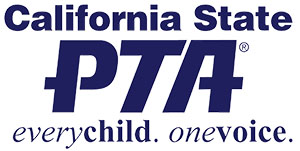 School Reopening Principles
School Reopening Principles
Schools should not open in person unless it is safe for students and staff. School districts should adhere to the requirements set forth by the California Department of Public Health and county health departments regarding the reopening of schools. Protecting the health and well-being of students, staff and families must come first.
- School districts must provide a variety of opportunities for robust input and feedback from parents who are representative of the demographics of the school community. Communication with families and students should be early and often. Two-way communication before and during school reopening planning and implementation is critical for the health and safety of all students, staff and families.
- Parents and families should be able to ask questions and receive responses about the school’s plans before a physical return to school. Plans should include information about physical safety, distancing practices, health screenings and testing, and ventilation systems. Parents should be informed of the district’s plan of action in the event of an outbreak, detailing the possibility of reclosure or quarantine of some students and staff. A helpful guide including questions to ask was developed by PACE in conjunction with California State PTA; “Navigating the Uncertainty of Reopening Schools: A Guide for Parents, Families and the Public” is available on our website at capta.org.
- Parents and families should be provided with choice in determining whether their child returns to the classroom full or part-time or participates in distance learning or a hybrid model.
- Some children are disproportionately impacted by distance learning. The needs of children living in poverty, English language learners, children with disabilities and special needs, and other vulnerable students must be effectively addressed. It is not acceptable for any child to miss out on crucial learning opportunities.
- In order for distance and hybrid models of teaching and learning to be successful for all children and youth, all students must have access to the internet and compatible computers or tablets.
- There needs to be flexibility in timing that works for families with multiple children, working families, and families with other hurdles. For middle and high school students, schools should not start before 8:30 am to protect student health and well-being. Getting input ahead of time from local families about these issues is imperative.
- Schools are encouraged to limit the number and types of platforms that students and families must navigate in order to participate successfully in distance or hybrid learning.
- Distance and hybrid models of teaching and learning should include the same instructional supports and high quality of learning and instruction as traditional on-site instruction, addressing equity and incorporating age and developmentally appropriate instructional best practices.
- Afterschool and childcare programs need to be available and coordinated with the school day for working families.
Information and Guidance for PTAs Requested to Support Waiver Applications for
Elementary School In-Person Instruction
The application for an elementary school (grades transitional kindergarten (TK) to sixth grade) re-opening waiver requires school districts to indicate: “The extent to which the school, school district, or system of private schools has consulted with relevant labor, community, and parent organizations, as applicable.”
- PTAs may participate in providing input to school districts regarding a waiver application that reflects the variety of views of the parent community.
- A PTA should not sign a letter of support for a TK-6 waiver due to potential liability.
************
Excerpt from California Department of Public Health’s COVID restrictions on school opening and process to apply for a waiver: (bold emphasis added)
The California Department of Public Health (CDPH) developed the COVID-19 and Reopening In-Person Learning Framework (PDF) to support school communities as they decide when and how to implement in-person instruction for the 2020-21 school year.
This framework permitted schools and school districts to reopen for in-person instruction at any time if they are located in a local health jurisdiction (LHJ) that has not been on the county monitoring list within the prior 14 days. If the LHJ has been on the monitoring list within the last 14 days, the school must conduct distance learning only, until their LHJ has been off the monitoring list for at least 14 days.
The framework authorized local health officers (LHO) to grant a waiver of this criteria, in order for elementary schools to open for in-person instruction under specified conditions. Applicants must satisfy all waiver requirements in order to be granted a waiver. Waivers should be granted or denied pursuant to the process outlined below.
This elementary school waiver is applicable only for grades TK-6, even if the grade configuration at the school includes additional grades.
A district superintendent, private school principal/head of school, or executive director of a charter school (hereinafter applicant) can apply for a waiver from the LHO to open an elementary school for in-person instruction.
Applications and all supporting documents must be submitted to the LHO at least 14 days prior to the desired reopening date.
Prior to applying for the waiver, the applicant (or his/her staff) must (1) consult with labor, parent, and community organizations, and (2) publish elementary school reopening plans on the website of the local educational agency (or equivalent). Examples of community organizations include school-based non-profit organizations and local organizations that support student enrichment, recreation, after-school programs, health services, early childhood services or provide family support.
Full details:
https://www.cdph.ca.gov/Programs/CID/DCDC/Pages/COVID-19/In-Person-Elementary-Waiver-Process.aspx
To view or download a PDF version of this document, click here.

 You don’t have to be a “math person” to help your child be successful at mathematics!
You don’t have to be a “math person” to help your child be successful at mathematics!
 California State PTA is developing a training program to help districts, schools, and families learn more about the Local Control Accountability Plan (LCAP) process and to strengthen home-school partnerships to support student success and school improvement.
California State PTA is developing a training program to help districts, schools, and families learn more about the Local Control Accountability Plan (LCAP) process and to strengthen home-school partnerships to support student success and school improvement. The coronavirus epidemic has left many families struggling to pay bills while simultaneously trying to help their children learn at home. That’s why access to low-cost or free internet and affordable computers is now more essential to more people than ever before.
The coronavirus epidemic has left many families struggling to pay bills while simultaneously trying to help their children learn at home. That’s why access to low-cost or free internet and affordable computers is now more essential to more people than ever before.